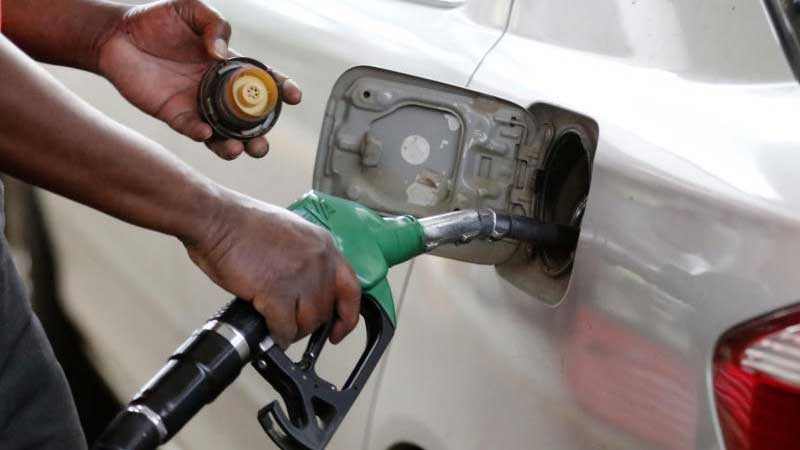
Last Saturday’s enactment of the 16 per cent VAT on petroleum products sent the prices of basic commodities into a tailspin, with fears that it could get worse in the coming days.
The outrage that greeted the law that came into effect on September 1 after a two-year reprieve is understandable.
The increase in the cost of fuel creates a multiplier in the whole economy, instantly. The cost of food, of commuting and moving goods, and cost of production all go up.
It might not be possible to quantify the exact cost this early, but make no mistake, it will be massive.
Treasury CS Henry Rotich’s wooly argument for the 16 per cent VAT on fuel- crafted in the early years of the Jubilee administration - still seems incomprehensible to many, including MPs who approved proposals by Suna East MP Junet Mohamed in a rare show of altruism. And why didn’t the MPs think it wise to expunge the provisions before now? Because all their effort could amount to nothing unless President Uhuru Kenyatta signs the Finance Bill 2018 without objecting to the amendments brought by the MPs.
Whereas the Government argues the new levy is ostensibly to allow it access a Sh150 billion facility, to cushion the shilling from market fluctuations, economic experts say the tax is meant to plug a growing budget deficit, 9 per cent this year. This thanks to Jubilee’s borrowing frenzy, runaway corruption and wastage in the public service; made worse by a weak taxation regime and Government profligacy.
Good policy is that which enables the people to output more goods and services not that which throttles production. To prop up the economy, some governments like in the US, hand out tax rebates because they recognise spending makes the economy grow.
Kenyans, especially the downtrodden struggling to get by are right to feel betrayed. By conservative estimates transport costs take up two-thirds of their income. And no doubt, the new levies will take away the little that was left; driving them deeper into a hand-to-mouth survival.
It is safe to assume that the pressure from the IMF was to ensure that Kenya lowers its budget deficit to below 6 per cent and most importantly, honours its maturing debt obligations some of which includes repaying funding for the Chinese –built SGR and other infrastructure projects.
Additionally, Kenya’s debt to GDP was an unhealthy 52 per cent in 2016/17 and there are no indications that that has improved.
In layman’s terms, Kenyans are paying for the reckless borrowing of their Government. This newspaper is not opposed to borrowing. Quite the reverse. Indeed loan is not in itself a bad thing. It is what investment the borrowed funds go into that matters. The folly of the Kenyan government was to borrow so much to fund projects that have a long payback period like for example, the SGR and which (as reported elsewhere in this newspaper) are avenues for looting and corruption.
Indeed, big economies like that of the US are largely funded through credit, especially from the Chinese.
The irony is that Treasury is punishing Kenyans to raise Sh70 billion when estimates are that KRA has lost Sh100 billion to tax evasion cartels in the past six months. Put another way; the pain from the tax far much outweighs the gain.
Considering the cost of the foregone, it would therefore seem that the Jubilee administration has unwittingly shot itself in the foot. Indeed one of President Kenyatta’s pillars in the Big Four agenda is manufacturing. A levy that loads an extra cost on the production process surely undermines that.
What to do? First; a government, any government that cares for its citizens, would have thought well before proposing a tax that portends ill for the economy. Treasury should withdraw the proposal forthwith.
The truth is you can’t grow an economy by taxing the people. Economic experts observe that if we have survived this long without the facility all these years, what is the worst that could happen?
Secondly, there are better and far more effective means to plug the hole in the budget. Some of them include the tried and tested; cutting back on extravagance and non-essential spending, sealing tax loopholes and leakages and generally, adapting financial prudence in the use of public funds.
Treasury should demonstrate its willingness to be a better manager of our taxes before it takes any more money from us.
 The Standard Group Plc is a multi-media organization with investments in media
platforms spanning newspaper print operations, television, radio broadcasting,
digital and online services. The Standard Group is recognized as a leading
multi-media house in Kenya with a key influence in matters of national and
international interest.
The Standard Group Plc is a multi-media organization with investments in media
platforms spanning newspaper print operations, television, radio broadcasting,
digital and online services. The Standard Group is recognized as a leading
multi-media house in Kenya with a key influence in matters of national and
international interest.
 The Standard Group Plc is a multi-media organization with investments in media
platforms spanning newspaper print operations, television, radio broadcasting,
digital and online services. The Standard Group is recognized as a leading
multi-media house in Kenya with a key influence in matters of national and
international interest.
The Standard Group Plc is a multi-media organization with investments in media
platforms spanning newspaper print operations, television, radio broadcasting,
digital and online services. The Standard Group is recognized as a leading
multi-media house in Kenya with a key influence in matters of national and
international interest.










